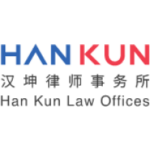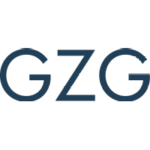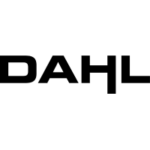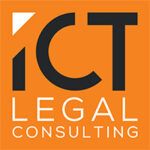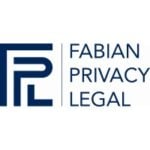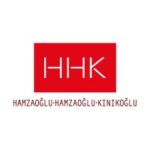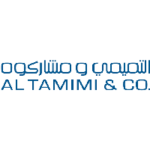-
What are your countries legal definitions of “artificial intelligence”?
In May 2025, Japan enacted its first comprehensive AI-specific legislation, the Act on Promotion of Research and Development, and Utilization of AI-related Technology (the “AI Promotion Act”). The AI Promotion Act defines “artificial intelligence-related technologies” as technologies essential for replicating human cognitive, reasoning, and decision-making abilities through artificial means. It also encompasses technologies related to information processing systems that utilize such technologies to process input information and output the results.
-
Has your country developed a national strategy for artificial intelligence? If so, has there been any progress in its implementation? Are there plans for updates or revisions?
The AI Promotion Act is a legislative framework designed to advance the research, development, and use of AI technologies, primarily focusing on government-led initiatives rather than imposing stringent requirements on private entities in Japan. Unlike the EU’s AI Act, which places significant obligations and penalties on businesses, Japan’s approach is more about fostering collaboration between the government and private sector without heavy regulatory burdens.
Key aspects of the AI Promotion Act include:
- Establishment of Principles: The law sets foundational principles for AI development and use, guiding national and local governments in implementing supportive measures.
- Artificial Intelligence Strategy Headquarters: This is a new entity within the Cabinet responsible for creating a fundamental AI plan, which will outline the government’s policy framework for AI advancement.
- Government Responsibilities: The law mandates both national and local governments to align their actions with the established principles, promoting AI research and development.
- Private Sector Cooperation: The law sets forth broad requirements for businesses using AI to “cooperate” with government-led initiatives; however, it does not impose any specific obligations or penalties.
The AI Promotion Act is expected to be the cornerstone of Japan’s AI regulatory framework, with market participants benefiting from closely monitoring the developments of AI initiatives based on the law. This includes the forthcoming fundamental AI plan, which will be developed by the Artificial Intelligence Strategy Headquarters and published by the prime minister.
Additionally, as part of the Hiroshima AI Process, Japan, along with other G7 countries, endorsed the Hiroshima AI Process Comprehensive Policy Framework in December 2023.1 This international policy framework consists of guidelines and a code of conduct aimed at promoting the dissemination of safe and reliable advanced AI systems.
Footnote(s):
1 Hiroshima AI Process G7 Digital & Tech Ministers’ Statement (December 1, 2023), https://www.soumu.go.jp/hiroshimaaiprocess/pdf/document02_en.pdf.
-
Has your country implemented rules or guidelines (including voluntary standards and ethical principles) on artificial intelligence? If so, please provide a brief overview of said rules or guidelines. If no rules on artificial intelligence are in force in your jurisdiction, please (i) provide a short overview of the existing laws that potentially could be applied to artificial intelligence and the use of artificial intelligence, (ii) briefly outline the main difficulties in interpreting such existing laws to suit the peculiarities of artificial intelligence, and (iii) summarize any draft laws, or legislative initiatives, on artificial intelligence.
In Japan, there are currently no comprehensive rules regulating AI. Instead, various ministries have published a range of guidelines related to the new technologies. Three key documents published recently are particularly noteworthy:
- AI Guidelines for Business Ver1.1 (issued by the Ministry of Internal Affairs and Communications and the Ministry of Economy, Trade and Industry)—These guidelines offer recommendations to mitigate risks associated with AI for businesses involved in the development, provision, and use of AI technologies. Although they are not legally binding, they serve as a valuable reference for AI operators to understand the recommended practices.
- General Understanding on AI and Copyright in Japan (issued by the Legal Subcommittee under the Copyright Subdivision of the Cultural Council of the Agency for Cultural Affairs)—This document outlines the Agency for Cultural Affairs’ perspective on issues surrounding AI and copyright law, such as whether copyrighted works can be used for AI training without permission, based on the current state of discussions.
- Interim Summary of the Study Group on Intellectual Property Rights in the AI Era (issued by the Study Group on Intellectual Property Rights in the AI Era)—This interim summary presents the government’s perspective on various issues surrounding AI and intellectual property rights such as trademarks and patent law. It does not have legal binding force, nor is it definitive, but it serves as a useful reference for understanding the current direction of the discussions.
In addition, the Principles of a Human-centric AI Society issued by the Cabinet Office were formulated in 2019, before the emergence of generative AI. They consist of three fundamental concepts that should be respected in an AI-ready society and seven basic principles to realize these concepts. They serve as a useful basic reference and are also cited in the aforementioned AI Guidelines for Business Ver1.1.
-
Which rules apply to defective artificial intelligence systems, i.e. artificial intelligence systems that do not provide the safety that the public at large is entitled to expect?
There is currently no legislation or regulation specific to AI in Japan. Under Japanese law, the laws generally applicable to AI are the Civil Code, the Product Liability Act, and the Penal Code. Please refer to Nos. 5, 6, and 7 below for the details and applicable circumstances of each law.
In addition, liability for defective AI will also be governed by the provisions of any contracts or agreements between the contracting parties.
-
Please describe any civil and criminal liability rules that may apply in case of damages caused by artificial intelligence systems. Have there been any court decisions or legislative developments clarifying liability frameworks applied to artificial intelligence?
The Civil Code, the Product Liability Act, and the Companies Act are among the civil rules that may be applicable in case of damages caused by AI systems.
Under the Civil Code, any person who, intentionally or negligently, infringes on the rights or legally protected interests of another person is liable to compensate for any resulting damages (Article 709). In addition, if there is a contract or agreement between the parties, the defaulting party is liable for damages if it defaults on any contractual obligations (Article 415).
Under the Product Liability Act, if a defect in a delivered product causes death, bodily injury, or infringement of property, the manufacturer is liable to compensate for losses or damages (Article 3). The term “product” means movables that are manufactured or processed (Article 2.1). AI software itself is not a “product” as it is an intangible object; however, if AI software is incorporated into and integrated with a tangible object, that object constitutes a “product.” In contrast to the EU proposal for an Artificial Intelligence Liability Directive and Product Liability Directive, there is no presumption of causation or defect in either the Civil Code or the Product Liability Act.
Moreover, the Companies Act includes a provision regarding the liability of officers for damages to third parties. If the officers of a company have acted in bad faith or with gross negligence in performing their duties related to an AI product, they are liable for damages to third parties resulting from such actions.
On the other hand, the rules applicable to criminal liability are the Penal Code, related special laws, and the Copyright Act. Any person who develops or uses AI may be criminally liable as a negligent offender. For example, if an autonomous vehicle equipped with AI causes a traffic accident, the driver may be liable under the Act on Punishment of Acts Inflicting Death or Injury on Others by Driving a Motor Vehicle, Etc. (Article 5), provided that the accident was caused by the driver’s negligence. However, in some cases, the automobile manufacturer may be held criminally liable.
If the automobile manufacturer ascertains, based on traffic accident information, that an autonomous driving system caused a traffic accident and, as a result of an internal review, identifies a defect in that system but did not recall the vehicle and ignored the defect, it may be liable under the Penal Code for subsequent traffic accidents caused by the autonomous driving system that result in death or injury (Article 211). In addition, the Copyright Act also includes a provision regarding criminal liability (Article 119.1), and if a company continues to sell AI products despite it being aware that they infringe on copyright, the company itself and its directors may be held criminally liable.
-
Who is responsible for any harm caused by an AI system? And how is the liability allocated between the developer, the deployer, the user and the victim?
As noted above, under the Civil Code, any person who, intentionally or negligently, infringes on the rights or legally protected interests of another person is liable to compensate for any resulting damages (Article 709). In this context, the term “negligently” refers to the failure to take necessary measures to prevent the occurrence of a specific result, even though such a result was foreseeable. For example, if a person’s use of AI causes harm to a third party, the AI user may be held liable in tort if there was “negligence.”
Liability based on the Product Liability Act is primarily a matter between the AI developer and the infringed party and is recognized when the manufacturer of a “defective product” “infringes on the life, body, or property of another” (Article 3), as described above. The term “defective” refers to a lack of safety that a product normally provides. The existence of a defect is determined comprehensively, in consideration of various factors, such as the product’s characteristics and its normally expected use.
If an accident involving a defective product is caused by AI, and there is a contractual relationship between the AI developer and the purchaser of the product, the AI developer may be liable under the relevant contract. Specifically, the failure of the AI to meet the performance standards required for the tasks intended by the parties, or to operate as expected, may constitute a breach of a contractual obligation.
-
What burden of proof will have to be satisfied for the victim of the damage to obtain compensation?
The term “negligence” in tort refers to the failure to take necessary measures to prevent the occurrence of a specific result, even though such a result was foreseeable, as noted above. When pursuing liability in tort, the injured party bears the burden of proof that the other party was negligent. Proving negligence on the part of AI users or developers is likely to be extremely onerous, since the development and decision-making processes of AI are not easily elucidated.
Additionally, if the injured party will invoke liability based on the Product Liability Act (with the limited scope of applicability mentioned in No. 5 above), they must allege and prove that there was a “defect” in the AI product. Since the decision-making process of AI is highly complicated, it is likely to be difficult to allege and prove how or why the technology is defective. However, a number of court decisions in Japan have alleviated the injured party’s burden of proof in certain cases, such as when they have difficulty gaining sufficient knowledge and information regarding the product, which may be helpful when considering the burden in product liability for AI.
-
Is the use of artificial intelligence insured and/or insurable in your jurisdiction?
Currently, insurance products specifically designed for the installation or operation of AI are not yet prevalent. Insurance products for corporate customers mainly cover product liability and other risks arising from defective AI products.
However, there is an insurance product that provides coverage for various costs that companies may incur due to issues such as intellectual property infringement lawsuits, data leaks, and hallucinations resulting from the use of generative AI.2 Therefore, it is anticipated that such insurance products related to AI will be more actively developed in the near future as a means of distributing risks among AI developers, users, and infringed parties.
Footnote(s):
2 https://www.aioinissaydowa.co.jp/corporate/about/news/pdf/2024/news_2024022701277.pdf
-
Can artificial intelligence be named an inventor in a patent application filed in your jurisdiction?
No. Inventors are assumed to be natural persons under the current Patent Act of Japan. AI cannot be named an inventor in a patent application.
The Tokyo District Court decision of May 16, 2024 (case no. 2023 (Gyo-U) 5001) found that “inventor” under the Patent Act is construed as limited to a natural person. The decision also states that the legal framework of the AI invention should be discussed in the legislative process. This is a case regarding DABUS, an AI system that autonomously generates inventions via artificial intelligence, which has been the subject of lawsuits in various countries. The Intellectual Property High Court dismissed the appeal on January 30, 2025 (case no.2024 (Gyo-Ko) 10006) and maintained the decision that “inventor” under the Patent Act is limited to a natural person.
In this regard, the Intellectual Property Rights Promotion Plan 20243 (of the Intellectual Property Rights Strategy Headquarters of the Prime Minister’s Office) states that a natural person should be named as the inventor, according to the conventional idea that a human being creatively involved in completing a characteristic part of an invention is considered the inventor, as AI itself would not engage in creative activities without human contribution. The plan also recommends that the Japan Patent Office, in association with related authorities, should explore how to address situations where AI might autonomically complete a distinctive part of an invention. Based on this idea, the Intellectual Property Rights Promotion Plan 2025, issued in June 2025, adds that further consideration should be given to how contributions of developers of AI used in the invention process are evaluated.
Footnote(s):
3 The Intellectual Property Rights Promotion Plan 2024 – Towards Rebuilding of the Intellectual Property Ecosystem that Creates and Promotes Innovation and Promotion of the “New Cool Japan Strategy was released on June 4, 2024.
-
Do images generated by and/or with artificial intelligence benefit from copyright protection in your jurisdiction? If so, who is the authorship attributed to?
In Japan, images generated solely by AI are not eligible for protection under the Copyright Act. According to the law, a copyrighted “work” is defined as a “creatively produced expression of thoughts or sentiments that falls within the literary, academic, artistic, or musical domain.” Consequently, images autonomously generated by AI are not considered “creatively produced expression of thoughts or sentiments” and are therefore not protected as copyrighted work.
On the other hand, if a person creates images using (i.e. with) artificial intelligence as a “tool,” these images can be protected under the Copyright Act. In such cases, authorship is attributed to the person.
The Agency for Cultural Affairs issued the General Understanding on AI and Copyright in Japan in March 2024. It discusses the copyright and authorship of images generated by/with generative AI. According to the document, the determination of whether AI has been used as a “tool” hinges on two factors: the individual’s “creative intention” and “creative contribution.” It clarifies that if the person’s involvement is limited to merely prompting the AI, then they do not meet the creative contribution criterion. A certain level of creative contribution, such as multiple considerations and modifications of the outputs generated by AI, is required for the material to be copyrighted. The document provides three examples of factors for assessing creative contribution to AI work: a) the quantity and specificity of instructions and inputs (such as prompts); b) the number of generation attempts; and c) the selection from generated works.
-
What are the main issues to consider when using artificial intelligence systems in the workplace? Have any new regulations been introduced regarding AI-driven hiring, performance assessment, or employee monitoring?
The main issues of using artificial intelligence systems in the workplace revolve around privacy, personal data protection, and labor laws. These issues often arise in scenarios such as recruitment and employee evaluation. In Japan, there are no specific prohibitions or regulations against using AI in these areas. However, it is crucial to ensure that its use does not violate general requirements under labor laws and the Act on the Protection of Personal Information (the “APPI”).
In a specific case, the labor union of IBM Japan filed an application for relief with the Tokyo Metropolitan Government Labor Relations Commission, seeking transparency in salary decisions made using the artificial intelligence system “Watson” in the company’s personnel evaluations. The labor union and IBM Japan reached a settlement in August 2024, with the company disclosing the following to the labor union: a) the factors considered by AI in determining salaries; b) the connection between these factors and the evaluation criteria under the wage rules; and c) the details of AI-generated proposals when necessary to address concerns raised by the labor union about negative wage evaluations. Additionally, IBM Japan committed to negotiating in good faith with the union if any doubts about wage evaluations are raised.4
Furthermore, the Labor Standards Act prohibits differential treatment with respect to working conditions based on nationality, creed, or social status, as well as differential treatment in wages based on gender. These issues should be considered where artificial intelligence systems are used in personnel affairs.
In general, it is important to note that, in Japan, the threshold for dismissing employees is high. Consequently, an employer cannot immediately fire an employee, even if their job function can be replaced by artificial intelligence systems, under Japanese labor laws.
Footnote(s):
-
What privacy issues arise from the development (including training) and use of artificial intelligence?
The development (including training) and use of artificial intelligence often raise concerns regarding compliance with the APPI, which is the primary legislation for privacy protection in Japan. One major concern is the obligation to notify individuals about the purposes for which their data is being used, as well as the prohibition of acquiring sensitive personal information without consent. These issues become particularly relevant in scenarios where AI models are trained and AI services are provided.
In this context, the Personal Information Protection Commission (the “PPC”) issued a warning in June 2023, specifically addressing the use of generative AI services. This warning, directed at OpenAI and other handling operators, administrative agencies, and general users, emphasizes the importance of not acquiring sensitive personal information without consent. It also mandates that necessary measures be taken to ensure that the information collected for machine learning does not include sensitive personal data. Additionally, the warning requires that the purposes for using the data be published or disclosed in a notice in Japanese.
Even when AI and data-handling practices comply with laws such as the APPI, there are instances where privacy concerns can still pose reputational risks. For example, the use of face-recognition cameras in railway stations to analyze people flow and prevent crime has been criticized from the perspective of the infringement of privacy, despite being compliant with the APPI.
Based on the above examples in Japan, it is recommended to consider reputational risk and provide thorough explanations about the purposes and range of use of information to users when artificial intelligence is used in services even if the processing is lawful.
-
How is data scraping regulated in your jurisdiction from an IP, privacy and competition point of view? Are there any recent precedents addressing the legality of data scraping for AI training?
Copyright: Under Japanese copyright law, using copyrighted works collected through data scraping for AI training may be permissible, depending on the specific use, as explained below.
In principle, the Copyright Act prohibits the duplication of copyrighted works, which is necessary for data scraping, without the copyright holder’s permission, and it does not have any comprehensive exceptions like “fair use.” However, the law includes specific exception provisions for certain uses, such as “non-enjoyment use” and “minor use” exceptions. These exceptions may apply to using copyrighted works collected through data scraping for AI training.
- Non-enjoyment use: Article 30-4 permits the use of copyrighted material without the copyright holder’s permission in cases where such use does not involve the enjoyment of the work (i.e. the perception of thoughts or emotions expressed in the copyrighted work) during information processing, such as information analysis, to the extent considered necessary. “Information analysis” refers to the extraction of language, sound, images, or other information constituting such information from numerous copyrighted works and other vast amounts of data, and the comparison, classification, and analysis of this information, which may potentially include web scraping. However, the provision specifies that this exception does not apply if such use “unreasonably harms” the interests of the copyright holder based on the type and purpose of the copyrighted work and the manner of use, but what constitutes unreasonable harm remains ambiguous. There are currently no court precedents on this issue.
- Minor use: Article 47-5 permits the limited use of publicly available copyrighted works when providing results from computer-based searches or data analysis, as long as this use is incidental to the service being provided and necessary for its purpose. For example, offering snippets alongside URLs in search results may be acceptable under this provision. However, as also stated in Article 30-4, such use should not unreasonably harm the interests of the copyright holder.
Data Protection: The APPI applies if data scraping involves the collection and processing of personal information. When web scraping only involves the collection and use of non-personal data, it is not subject to the APPI. The key obligations of businesses handling personal information include:
- specifying and notifying the data subjects, or making the purpose of collecting the personal information (typically through a privacy policy) available to the public;
- using personal information within the specified purpose; and
- not using personal information in any manner that entails the possibility of fomenting or prompting unlawful or unfair acts.
Competition: Japanese competition law does not have specific regulations that apply to data scraping.
-
To what extent is the prohibition of data scraping in the terms of use of a website enforceable?
First, businesses considering online data scraping must determine whether the terms of use that prohibit data scraping are binding. For instance, if data is publicly available and can be accessed freely without requiring active actions like user registration, it is unlikely that the terms of service are binding solely by the act of scraping data.
Even if such terms are binding, the provisions that prohibit data scraping may be deemed invalid by a court. A report published by the Intellectual Property Policy Office of the Ministry of Economy, Trade and Industry in February 2022 indicates that these matters should be decided on a case-by-case basis, but provisions that restrict the use of copyrighted works for AI learning, which is permitted under the Copyright Act, may be deemed contrary to public policy and could likely be considered invalid within that scope. However, there are currently no court precedents on this issue.
-
Have the privacy authorities of your jurisdiction issued guidelines on artificial intelligence?
The PPC has not issued any comprehensive guidelines applicable to the development and use of artificial intelligence. However, the commission has published guidelines and warnings that may relate to AI as follows:
As mentioned in No. 12, the PPC has issued warnings regarding the use of generative AI services. The warnings include notices for entities, administrative agencies, and users.
The PPC warnings require entities and administrative agencies that input prompts containing personal information into generative AI services to sufficiently confirm that the input is within the scope necessary to achieve the specified purpose of using the personal information. If they input prompts containing personal data into generative AI services without the data subject’s prior consent, they must also sufficiently confirm that the service provider does not use the personal data for machine learning, as the processing of personal data for purposes other than generating responses to the prompts would violate the APPI.
The PPC warnings also require users to consider the risk that (i) when personal information is input into generative AI services, the AI may use that information for machine learning and may produce accurate or inaccurate outputs that are statistically linked with other information, and (ii) when processing personal information using generative AI, inaccurate personal information may be output by the AI due to its output generation process based on probabilistic correlations. Users should also sufficiently confirm the terms of use and the privacy policy of the generative AI service provider, and make appropriate decisions on the use of those services.
Moreover, the PPC has published FAQs related to the APPI guidelines, which address profiling. The commission has stated that businesses must specify the purposes of use, including the analysis and processing of the behavior and interests of data subjects. Additionally, the PPC has issued guidelines on using camera systems with facial recognition functions for crime prevention and safety purposes. According to these FAQs and guidelines, businesses should specify the purposes for which the facial recognition functions are used, and either notify the data subjects or make the purposes of use public.
The PPC frequently updates its FAQs related to the APPI guidelines. Further guidance about artificial intelligence may be issued in the future.
-
Have the privacy authorities of your jurisdiction discussed cases involving artificial intelligence? If yes, what are the key takeaways from these cases?
The PPC has addressed the use of artificial intelligence and related technologies, such as profiling and facial recognition with camera systems, in the FAQs and guidelines mentioned in No. 15. Additionally, the commission has issued warnings related to OpenAI, as mentioned in No. 12. Please see the sections above for details.
-
Have your national courts already managed cases involving artificial intelligence? If yes, what are the key takeaways from these cases?
In one case tangentially related to AI, a lawsuit was filed by a restaurant claiming compensation against the company that operates the Tabelog restaurant review and booking website, alleging that its sales decreased due to unfairly lowered assessment scores on the site. The court concluded in the first trial that the change in the algorithm that determines the rating points constituted an abuse of a superior bargaining position and acknowledged liability for damages. In the second trial, the court dismissed the plaintiff’s claim, concluding that the change in the algorithm was rational to a certain level, and that the transaction was a disadvantageous one by taking advantage of a superior bargaining position, but not to the extent of being unfair and unwarranted.
There is another case on whether an AI system can be named an inventor in a patent application. For details of this case, please see No. 9 above.
In addition, although it is not a case concerning AI, there is an informative case based on the Product Liability Act involving a defect in a product that caused a fire and resulted in a person’s death. The court stated that if the party alleging the “product” is defective has limitations in identifying and proving in detail the specific site of the defect and the cause of the accident, it is sufficient to demonstrate that the plaintiff used the product according to its normal usage and that the accident occurred despite such usage. This case will be helpful by analogy for court decisions in future AI disputes.
It is essential to closely monitor the approach Japanese courts will take in the future regarding the burden of proof in claims for damages based on tort or product liability.
-
Does your country have a regulator or authority responsible for supervising the use and development of artificial intelligence?
According to the AI Promotion Act, the Artificial Intelligence Strategy Headquarters will soon be established. These headquarters will be responsible for creating a fundamental AI plan that outlines the government’s policy framework for AI advancement. Additionally, they will have the authority to request necessary cooperation from various government agencies in implementing AI-related initiatives. Execution of these initiatives will continue to be carried out by the respective agencies within each sector. For instance, the PPC regulates and monitors privacy and data protection concerns related to AI applications.
-
How would you define the use of artificial intelligence by businesses in your jurisdiction? Is it widespread or limited? Which sectors have seen the most rapid adoption of AI technologies?
The use of artificial intelligence by businesses in Japan is increasingly widespread. The country has seen a significant uptick in AI integration across industries, driven by both economic necessity—such as addressing labor shortages and an aging population—and government initiatives promoting digital transformation and innovation. For example, the Financial Services Agency has published a discussion paper aimed at promoting the use of AI at Japanese financial institutions. This paper clarifies the application of regulations to alleviate the challenges faced by financial institutions using AI. As part of the government’s major AI policies for the fiscal year 2025, substantial funding is being allocated to strengthen research and development capabilities, focusing on data infrastructure, AI semiconductors, and communication sectors. Additionally, efforts are being made to promote AI in fields such as healthcare, pharmaceuticals, automotive, and education.
-
Is artificial intelligence being used in the legal sector, by lawyers and/or in-house counsels? If so, how? Are AI-driven legal tools widely adopted, and what are the main regulatory concerns surrounding them?
Artificial intelligence is increasingly being used in the Japanese legal sector by both lawyers and in-house counsel. In recent years, a significant number of AI-powered legal services have been released and are being adopted by law firms and corporate legal departments. These AI-driven tools are primarily used for contract review and analysis, due diligence, and document automation.
However, when providing legal services using AI tools, it is crucial to ensure compliance with Article 72 of the Attorneys Act, which prohibits the handling of legal matters by non-lawyers. This area has been somewhat ambiguous regarding what specifically constitutes a violation, but in August 2023 the Ministry of Justice published guidelines clarifying the permissible scope for providing legal services using AI, making the regulations more transparent.
-
What are the 5 key challenges and the 5 key opportunities raised by artificial intelligence for lawyers in your jurisdiction?
The following points highlight the challenges and opportunities that we believe will arise from the use of AI in the legal profession.
Challenges:
- Regulatory Uncertainty: The utilization of AI may introduce legal issues of unprecedented complexity, for which current laws may not provide clear guidelines. This requires lawyers to navigate the ambiguity.
- Attorney Regulations: Lawyers must ensure AI use aligns with ethical standards, avoiding fabricated cases or evidence that would breach legal ethics.
- Impact on Less Complex Matters: AI automation of simple tasks may reduce training opportunities and blur distinctions between lawyers and competitors.
- Understanding of AI: Lawyers need to stay updated on AI developments to meet client expectations and maintain service standards.
- Security and Data Protection: Increased data handling with AI heightens the risk of breaches, necessitating robust protection measures for client information.
Opportunities:
- Expansion of Practice Areas/Services: The emergence of legal issues related to AI creates opportunities for lawyers to explore new areas of practice. There will be a growing demand for legal services that address AI-related concerns, such as intellectual property violations, data protection, and privacy issues.
- Streamlining of Work Processes: AI can automate routine tasks, allowing lawyers to focus on complex matters and improve productivity.
- Improved Accuracy and Reduced Errors: By employing AI for legal research and document drafting, lawyers can minimize human error and enhance the overall quality and accuracy of their legal advice. AI tools can help lawyers access vast amounts of legal information quickly and efficiently.
- Enhanced Access to Justice: AI may help overcome barriers of time and cost, thereby improving access to legal services and the justice system.
- New Career Possibilities: The integration of AI in the legal profession opens up new career paths for lawyers. They can explore opportunities in technology-related fields that involve leveraging their knowledge of AI technology within a legal context. For example, lawyers can pursue roles at legal tech startups or in AI ethics consulting or legal advisory positions at AI development companies, combining their legal expertise with their understanding of AI systems.
-
Where do you see the most significant legal developments in artificial intelligence in your jurisdiction in the next 12 months? Are there any ongoing initiatives that could reshape AI governance?
AI Promotion Act: According to Japan’s first comprehensive AI-specific legislation, the government will publish a fundamental AI plan that will outline the policy framework for AI advancement and establish fundamental AI policies. Although these plans and policies are unlikely to directly impose legal obligations on privacy-focused businesses, the AI Promotion Act is expected to be the cornerstone of Japan’s AI regulatory framework. Market participants would benefit from closely monitoring AI initiatives that emerge from this law.
Data protection law: The PPC has proposed easing the APPI’s data subject consent requirements for collecting sensitive personal information and transferring personal data to third parties in the context of developing AI classifiable as non-personal statistical information. This would allow AI developers to use publicly available sensitive data and receive personal data from other parties without needing data subject consent, provided that it is strictly for AI development purposes. Although no draft bill of amendment has been released yet, these proposals aim to boost AI development by relaxing data protection constraints. It is advisable to keep an eye on the progress of amendments to the APPI.
Japan: Artificial Intelligence
This country-specific Q&A provides an overview of Artificial Intelligence laws and regulations applicable in Japan.
-
What are your countries legal definitions of “artificial intelligence”?
-
Has your country developed a national strategy for artificial intelligence? If so, has there been any progress in its implementation? Are there plans for updates or revisions?
-
Has your country implemented rules or guidelines (including voluntary standards and ethical principles) on artificial intelligence? If so, please provide a brief overview of said rules or guidelines. If no rules on artificial intelligence are in force in your jurisdiction, please (i) provide a short overview of the existing laws that potentially could be applied to artificial intelligence and the use of artificial intelligence, (ii) briefly outline the main difficulties in interpreting such existing laws to suit the peculiarities of artificial intelligence, and (iii) summarize any draft laws, or legislative initiatives, on artificial intelligence.
-
Which rules apply to defective artificial intelligence systems, i.e. artificial intelligence systems that do not provide the safety that the public at large is entitled to expect?
-
Please describe any civil and criminal liability rules that may apply in case of damages caused by artificial intelligence systems. Have there been any court decisions or legislative developments clarifying liability frameworks applied to artificial intelligence?
-
Who is responsible for any harm caused by an AI system? And how is the liability allocated between the developer, the deployer, the user and the victim?
-
What burden of proof will have to be satisfied for the victim of the damage to obtain compensation?
-
Is the use of artificial intelligence insured and/or insurable in your jurisdiction?
-
Can artificial intelligence be named an inventor in a patent application filed in your jurisdiction?
-
Do images generated by and/or with artificial intelligence benefit from copyright protection in your jurisdiction? If so, who is the authorship attributed to?
-
What are the main issues to consider when using artificial intelligence systems in the workplace? Have any new regulations been introduced regarding AI-driven hiring, performance assessment, or employee monitoring?
-
What privacy issues arise from the development (including training) and use of artificial intelligence?
-
How is data scraping regulated in your jurisdiction from an IP, privacy and competition point of view? Are there any recent precedents addressing the legality of data scraping for AI training?
-
To what extent is the prohibition of data scraping in the terms of use of a website enforceable?
-
Have the privacy authorities of your jurisdiction issued guidelines on artificial intelligence?
-
Have the privacy authorities of your jurisdiction discussed cases involving artificial intelligence? If yes, what are the key takeaways from these cases?
-
Have your national courts already managed cases involving artificial intelligence? If yes, what are the key takeaways from these cases?
-
Does your country have a regulator or authority responsible for supervising the use and development of artificial intelligence?
-
How would you define the use of artificial intelligence by businesses in your jurisdiction? Is it widespread or limited? Which sectors have seen the most rapid adoption of AI technologies?
-
Is artificial intelligence being used in the legal sector, by lawyers and/or in-house counsels? If so, how? Are AI-driven legal tools widely adopted, and what are the main regulatory concerns surrounding them?
-
What are the 5 key challenges and the 5 key opportunities raised by artificial intelligence for lawyers in your jurisdiction?
-
Where do you see the most significant legal developments in artificial intelligence in your jurisdiction in the next 12 months? Are there any ongoing initiatives that could reshape AI governance?
